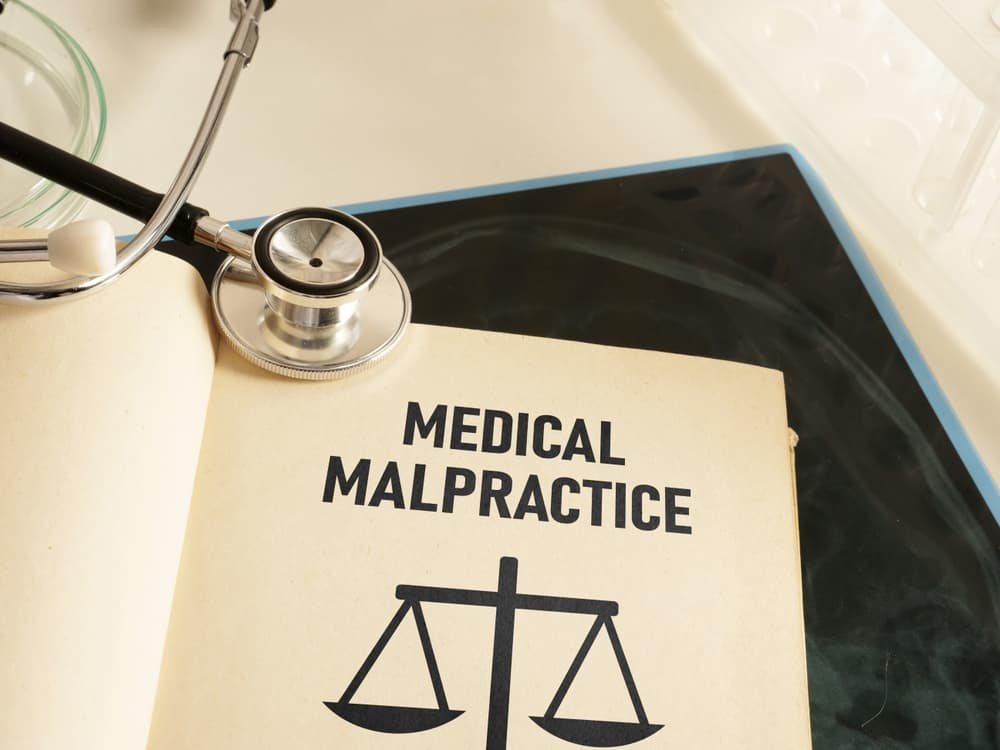
Fear of Driving After an Accident
Most everyone knows that traffic accidents can cause serious injuries that often require hospitalization and a long time to heal. Depending on the nature and severity of your injuries, you could need surgery, rehabilitation, and then rest at home. However, the adverse effects of motor vehicle crashes go beyond physical injuries. The emotional trauma after an accident can be just as debilitating as any physical injuries, and their effects can last long after the traumatic event.
Many car accident survivors suffer from post traumatic stress disorder (PTSD), emotional distress, sleep disturbances, and intense fear of driving. The psychological effects can cause increased anxiety and make it harder to go about your daily life, which can affect your job and other routine life activities.
When the emotional trauma of the accident becomes extreme, you may need to seek treatment from a mental health professional to help you cope with your traumatic memories and the emotional stress you're experiencing. If someone else caused the motor vehicle accident through their carelessness or recklessness, you need to contact an experienced personal injury attorney near you for a free consultation on how you could recover compensation from the at-fault party.
The Emotional Aftermath of a Traffic Accident
When a traffic accident occurs, the body experiences an adrenaline surge, which helps mask injury pain and anxiety as the individual’s mind and body attempt to cope. With the removal of that danger, the adrenaline dissipates and the person involved in the crash may experience anxiousness or depression. Most people have these feelings go away with time. In others, this fear and depression remain and can make it difficult for them to cope. Some of the problems injury accident victims face following a collision are:
- Anxiety
- Fear, including the fear of driving or riding in a vehicle
- Depression
- Flashbacks of the accident
- Nightmares
- Sleeplessness
- Mood Swings
- Waking up in a cold sweat
- Fear of going out in public
- Loss of appetite
- Anger
- Feelings of helplessness
- Lack of interest in family activities
- Post-traumatic stress disorder
Symptoms of Emotional Trauma With PTSD
People are probably familiar with the term PTSD as it refers to soldiers who've returned from a war zone. During World War 1, it was called shell shock. However, PTSD happens in some people after any traumatic experience, including a motor vehicle collision. In 2003, the American Psychological Association reported that traffic accidents were the main reason for PTSD in members of the general population.
Symptoms of PTSD usually don't appear right away and may not show up for weeks. The National Center for PTSD reports that those who experience psychological or emotional trauma for longer than a few months may have this disorder. PTSD symptoms may vary, depending on the individual, but can include:
- Avoidance: Those with PTSD try to avoid fear and anxiety by avoiding people, places, and any circumstance that reminds them of the accident. At its extreme, the individual may develop anxiety attacks or agoraphobia, which is the fear of leaving the home. A fear of driving is another symptom but is treatable with professional help.
- Arousal: Some patients develop a state of hyper-vigilance that they can't get out of following a traffic accident. It can include difficulty falling asleep, problems focusing, and paranoia.
- Intrusive thoughts: An accident victim sometimes experiences unwanted thoughts about their accident, including in their dreams. It can cause nightmares with the individual waking suddenly with feelings of dread and terror. The inability to get a good night's sleep doesn't help with the victim's emotional and psychological state.
- Emotional numbness: Some patients with PTSD stay alert in a hyper way, but others numb their emotions in an attempt to block them out. The result is feelings of hopelessness and depression.
Any number of things could trigger PTSD, and different people experience trauma in different ways. There's really no way to accurately determine who may end up developing PTSD after a traumatic accident.
When PTSD or other severe emotional and mental health issues appear after a traffic accident, the individual may need to seek professional help. By filing a claim for accident injuries with the help of an attorney, the injured party may recover the costs of medical treatment, supportive therapy, and other necessary care.
What treatment options are available for PTSD resulting from a car crash?
Treatment options for post-traumatic stress disorder (PTSD) resulting from a car crash may include a combination of psychotherapy, medication, and self-care strategies. The most effective treatments will depend on the individual's specific symptoms, the severity of their PTSD, and their personal preferences. Some common treatment options include:
Psychotherapy
- Cognitive-behavioral therapy (CBT): CBT helps individuals identify and change negative thought patterns and behaviors related to the trauma. It may include exposure therapy, which involves gradually confronting trauma-related memories and situations.
- Eye movement desensitization and reprocessing (EMDR): EMDR combines exposure therapy with guided eye movements to help process traumatic memories and reduce their emotional impact.
Medication
- Antidepressants: Selective serotonin reuptake inhibitors (SSRIs) and serotonin-norepinephrine reuptake inhibitors (SNRIs) are commonly prescribed to help manage PTSD symptoms such as depression, anxiety, and sleep disturbances.
- Anti-anxiety medications: Short-acting anti-anxiety drugs like benzodiazepines may be used to manage acute anxiety symptoms, but they are typically not recommended for long-term use due to the risk of dependence.
Self-care strategies
- Relaxation techniques: Deep breathing, progressive muscle relaxation, and mindfulness meditation can help reduce stress and anxiety.
- Exercise: Regular physical activity can help improve mood, reduce stress, and promote better sleep.
- Social support: Connecting with friends, family, or support groups can provide a sense of comfort and help individuals feel less isolated.
Complementary therapies
- Acupuncture: Some studies suggest that acupuncture may help alleviate PTSD symptoms, particularly when combined with psychotherapy.
- Yoga: Trauma-sensitive yoga classes may help individuals reconnect with their bodies and manage stress.
It is essential for individuals with PTSD to work with a mental health professional who has experience treating trauma-related disorders. A therapist can help develop a personalized treatment plan that addresses the individual's unique needs and goals. In some cases, a combination of treatments may be most effective in managing PTSD symptoms and improving overall quality of life.
What should I do after a traffic accident in SC?
If you are involved in a traffic accident in South Carolina, follow these steps to ensure your safety and protect your legal rights:
- Check for injuries: Ensure that you and your passengers are safe. If anyone is injured, call 911 immediately for medical assistance.
- Move to a safe location: If possible, move your vehicle to a safe spot on the shoulder or side of the road to avoid further accidents. Turn on your hazard lights.
- Call the police: Contact law enforcement to report the accident. They will create an official accident report, which can be valuable for insurance claims and legal proceedings.
- Exchange information: Collect the other driver's name, contact information, insurance details, license plate number, and vehicle make and model. Provide your information as well.
- Document the accident: Take photos of the damage to all vehicles involved, the accident scene, and any visible injuries. Make notes about the date, time, location, weather conditions, and any other relevant details.
- Gather witness information: If there are witnesses, ask for their names and contact information, as their statements may support your claim.
- Seek medical attention: Even if you feel fine, some injuries may not be immediately apparent. Visit a doctor or hospital to get checked and document any injuries related to the accident.
- Notify your insurance company: Contact your insurance provider to report the accident and initiate the claims process. Provide factual information but refrain from admitting fault.
- Consult with an attorney: If you suffered injuries or there are disputes about liability, consider consulting with a personal injury attorney to protect your rights and help you navigate the legal process.
- Keep records: Maintain copies of all accident-related documents, including the police report, medical records, repair bills, and communications with insurance companies and attorneys.
Remember, South Carolina follows a "fault" system for auto accidents, which means that the at-fault driver's insurance is responsible for covering damages and injuries. South Carolina also applies a "modified comparative negligence" rule, which allows you to recover damages as long as you are less than 50% at fault for the accident.
What compensation can I receive for PTSD after a car accident in South Carolina?
Compensation for post-traumatic stress disorder (PTSD) and other mental injuries or emotional harm after a car accident falls under the category of non-economic damages, also known as "pain and suffering" damages. These damages are intended to compensate you for the psychological impact of the accident and the resulting consequences on your life.
Potential compensation for PTSD and emotional harm may include:
- Mental health treatment expenses: Costs related to therapy, counseling, and medication required to treat your PTSD and other mental health issues arising from the accident.
- Lost wages: If your mental injuries prevent you from working or cause you to miss work, you may be entitled to compensation for lost income.
- Loss of enjoyment of life: If your mental injuries negatively impact your ability to participate in activities you once enjoyed or affect your quality of life, you may be compensated for this loss.
- Emotional distress: This includes compensation for the psychological pain, suffering, and anguish caused by the accident and your injuries.
Proving and quantifying non-economic damages can be challenging, as they are subjective and vary from case to case. Factors that may influence the amount of compensation include the severity of your mental injuries, the duration of your symptoms, and the impact on your daily life and relationships.
To support your claim, it is essential to have documentation from mental health professionals, such as a PTSD diagnosis, treatment records, and expert testimony. An experienced personal injury attorney can help you gather the necessary evidence and build a strong case to pursue fair compensation for your mental injuries and emotional harm.
How can a South Carolina lawyer help me get compensation?
A personal injury lawyer can help you recover compensation after a car accident in several ways:
- Assessing your case: An experienced personal injury attorney can evaluate the merits of your case, estimate the potential value of your claim, and advise you on the best course of action.
- Gathering evidence: A lawyer can investigate the accident, gather police reports, medical records, witness statements, and other crucial evidence to build a strong case on your behalf.
- Identifying liable parties: In some cases, multiple parties may be liable for your injuries. A lawyer can help identify all potential sources of compensation, such as the at-fault driver, their employer (if applicable), or even a vehicle manufacturer if a defect contributed to the accident.
- Negotiating with insurance companies: Insurance adjusters often try to settle claims for the lowest amount possible. A skilled attorney can handle communications with the insurance company and negotiate a fair settlement that accounts for all your damages, including medical expenses, lost wages, pain and suffering, and future costs.
- Filing a lawsuit: If a fair settlement cannot be reached through negotiations, a lawyer can file a lawsuit on your behalf and represent you in court proceedings.
- Navigating legal complexities: Personal injury cases can involve complex legal issues, such as proving liability, adhering to statutes of limitations, and dealing with comparative negligence rules. An attorney can guide you through these challenges and protect your rights.
- Maximizing your compensation: Lawyers experienced in handling car accident cases know how to assess the full extent of your damages, including future medical needs and non-economic losses like pain and suffering. They can help ensure that you receive the maximum compensation available for your claim.
- Providing peace of mind: Dealing with the aftermath of a car accident can be stressful, especially when you're trying to recover from injuries. By handling the legal aspects of your case, an attorney can alleviate some of this stress and allow you to focus on your recovery. Additionally, an experienced lawyer can significantly improve your chances of receiving fair compensation for your injuries and losses.
Morris Law Accident Injury Lawyers in South Carolina
Morris Law Accident Injury Lawyers in South Carolina understands what you're going through when the emotional trauma of a traffic accident is difficult to overcome. You shouldn't bear the burden of paying your medical bills while also dealing with your emotional injuries following a car accident someone else caused.
Our lawyers and staff can help you get the compensation you need, and you can count on us for personalized attention and dedicated support along the way. Call us at (843) 232-0944 in the area of Myrtle Beach or (807) 470-4444 in Aiken, and we can schedule a free review of your case. You can also reach us online to request a free consultation. Because we work on a contingency basis, you owe us nothing until we recover compensation for you through an insurance settlement or win your case at trial.







